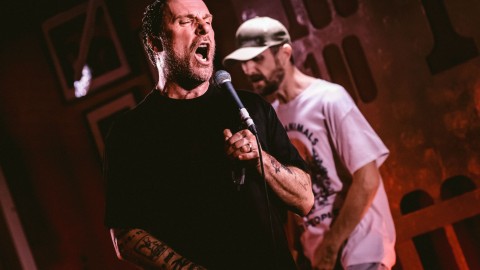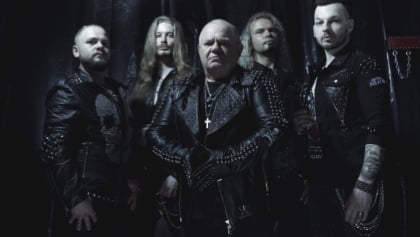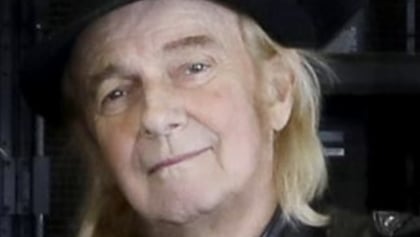
The ‘90s cabaret kids of Wellington, New Zealand, have come a long way since their detachable genital days. “One of the shows that Jermaine and I did early on was about body image,” says Bret McKenzie of the experimental theatre shows he started out in, alongside a community of weirdos including future Flight Of The Conchords partner Jermaine Clement and comedy ensemble player Taika Waititi. “The costumes were skin-coloured bike shorts with Velcro, detachable penises. It was very gender fluid. That was really, really fun. Pretty embarrassing when we were handing out flyers in these naked suits but no shame, no shame.”
Such antics preluded a ten-year ascent for the Conchords: the comedy-song duo of McKenzie and Clement that became an arena-filling cult phenomenon when their modest acoustic stage show of folk, prog, rap and soul funk spoofs – ‘Business Time’, ‘The Most Beautiful Girl (In The Room)’ – was transformed into an HBO series. Thirteen years on from their final series and studio album, Clement has enjoyed continued success as creator (with Waititi) of the 2014 What We Do In The Shadows film and its subsequent TV spin-off. Meanwhile Waititi, a sometime Conchords episode director, has become one of Hollywood’s most in-demand filmmakers, helming two Thor movies and winning an Academy Award, a BAFTA and a Grammy for 2019’s Jojo Rabbit.
“He’s got so massive,” says Bret, beaming jovially down a Zoom window from his Wellington home. “It’s awesome. I sometimes forget how big Taika has become… It’s cool seeing the same ideas that worked in theatre carry on working on the big films.”

For his part, McKenzie now commutes between quiet family life in Wellington and Hollywood, where he works as musical supervisor and comedy songwriter for movies including Dora And The Lost City Of Gold and major franchises like The Muppets and The Simpsons.
Flight Of The Conchords often played upon serious issues, be it in the heart-warming parable of ‘Albi The Racist Dragon’, the self-conscious sexism in rap pastiche ‘Hiphopopotamus vs. Rhymenoceros’ or the hard-hitting images of gang violence, monkey diseases and globalisation peppering ‘Think About It’. But sometimes the laughter has to stop. Briefly.
Growing tired of writing songs for films that “have to do a lot of jobs, a lot of character work or tell the story”, Bret began filing away ideas for more serious songs. “As much as I love comedy music, I don’t really listen to it in everyday life,” he admits. “I have a fondness for the funny song within an album that might be more serious. Lots of people have them. Courtney Barnett has some really funny lines and Leonard Cohen has a lot of funny lines. I was interested in something in that zone.”
“As much as I love comedy music, I don’t listen to it in everyday life”
Pulling together some of LA’s best session musicians, Bret laid down his debut solo album ‘Songs Without Jokes’ in four days at United Studios, revelling in its retro vibe. “Something about that period of ‘70s recording just seems like such a golden window of studio time,” he says. Unsurprisingly, ‘Songs Without Jokes’ emerged drenched in Americana, dipping into ragtime pop and melancholy piano balladry in the vein of Randy Newman, Billy Joel, Harry Nilsson and Tom Petty. Yet this record of support and endurance through tough, lonely and dislocated times is often rooted in the frustrations of leaving Wellington for lengthy LA work trips. First single ‘A Little Tune’ is a ragtime tribute to his family back home, while ‘That’s LA’ explores his dichotomous view of the City Of Angels. One minute he’s happily sipping Mai Tais in the Santa Monica surf, the next he’s tearful at the homelessness on Sunset Boulevard.
“The people are amazing and such great artists and musicians and creators there,” Bret argues. “I love the optimism of Hollywood – New Zealanders are far more self-deprecating and less confident and pessimistic about creative endeavours. I do love the Hollywood culture of ‘it’s gonna be amazing’… But the town itself is really desolate and quite tough.”
There’s also a strong ecological thread to the record, with the ironically jaunty ‘This World’ detailing the pollution and corporate lies resulting in a “broken” and “bleeding” planet. Piano ballad ‘Up In Smoke’ uses wildfires as a metaphor for a torched romance. For inspiration, Bret only had to look up. The Australian wildfires of 2019 sent an apocalyptic smoke cloud across the South Pacific to New Zealand.

“It was really bizarre, really ominous,” he recalls. “The haze came across and there was this really creepy red ominous sunset on New Year’s Eve 2020. And that was a pretty bad year… It’s hard to justify Hollywood, which is so wasteful in its systems and unnecessary. There’s some days it’s like ‘What’s the point of making this film? We’ve really got to be fixing the planet right now’.”
Bret’s early forays into music were rather more carefree. New Zealand in the ‘90s, he says, was reggae’s holiday home, the biggest market for Bob Marley records outside Jamaica (“the people who were into rock were a real minority crew”). Bret too felt the draw of Jah, joining a reggae party band called The Black Seeds and having touring misadventures that eventually bled into the Conchords’ TV show. Like the time the band was half an hour out of a festival site at 2am before the manager realised he’d left their $5,000 fee in a bag on the roof of the van.
Likewise, when he started writing songs with his university flatmate Clement in 1998, inspired by the “funny, narrative-driven” Beck track ‘Debra’ and leaning ever-more towards the laughs, their early comic struggles informed later Conchords storylines. Such as the time at a Vancouver fringe festival when their basement venue was so out-of-the-way and their stage times so audience-unfriendly that they couldn’t get anyone to come see their show at all.

“We’d be out trying to give out flyers,” Bret remembers. “This woman was walking home with her groceries and we managed to convince her to come into the creepy basement venue with her groceries at, like, 11 in the morning. Then we start playing these weird comedy songs. I can’t remember if it was her or somebody else but at some point we had an audience of one, and they left halfway through the show. That made it into the TV show.”
Early Conchords audiences, in fact, were bolstered by the Cult Of Figwit. Figwit being the name that Lord Of The Rings fanatics gave to the nameless and wordless elven extra that McKenzie played in the first movie. Figwit developed such an avid cult following that Peter Jackson invited Bret back for the third film, now with an actual line.
“Basically our bread and butter was Rings fans who came to our show,” he says, ruefully. “They helped us get things started. We could always tell because they’d have a little ring. We weren’t complaining because we had ten people in the audience so it was good if four of them were Lord Of The Rings people. But it made me cautious about being in the public eye and connecting with fans. I was like, ‘Oh, this is pretty strange’.”

Thankfully Flight Of The Conchords had nine years under the guitar straps and were rich in comedic depth before HBO shot them to stardom. “We got to make something quite strange and unique,” Bret says. “I think the audience really connected with how the show just seemed too weird to be on TV.”
How big did it get? “It got to the point where it was hard to go out to public places… We played the Hollywood Bowl, Radio City. It was crazy. The entire concert felt ironic because it was this hopeless band from this little TV show – the bigger the room the funnier it was when we did a recorder solo.”
By the end of season two in 2009, Bret claims, “we were very burnt out” and “finding an idea that we hadn’t done was harder than it had been in the past.” Bret had also had his first child. “Making a TV show and having children is just not very compatible,” he explains. “We’d work 12-hour days for weeks straight. I was definitely more interested in being around for my family.” The idea of sporadic, brief tours was far more appealing, between writing songs for Kermit and Fozzie Bear.
Today, Bret is busy at work on some animated movies and several labour-of-love projects including a theatre adaptation of George Saunders’ surreal political comedy The Brief And Frightening Reign Of Phil and a bubbling-along fairytale musical. The kind of imaginative, experimental and off-beat pitches that tend to excite Hollywood’s ideas guys but terrify its money men.
“It’s absolutely heroic when people manage to get new stories through the system,” he says. “It’s very geared up to franchise pre-existing entities, and I tend to like working in new things… I was doing a lot more screenwriting a few years ago and I got sent a toy catalogue, saying ‘are there any of these toys you’d like to write a movie about?’ It’s so crazy. Pick a toy, you’ll be able to make that movie.”
Meanwhile, there are no immediate plans to revive the Conchords. But in the wake of ‘Songs Without Jokes’, comedy songwriting is firmly back on his agenda. “Now I’m doing some other music that satisfies me in a different way,” Bret says, “I’m like: ‘Writing funny songs sounds fun again’.” For now, though, it’s serious business time…
Bret McKenzie’s debut solo album ‘Songs Without Jokes’ is out via Sub Pop on August 26
The post Bret McKenzie on ditching comedy songs: “My new music satisfies me in a different way” appeared first on NME.








